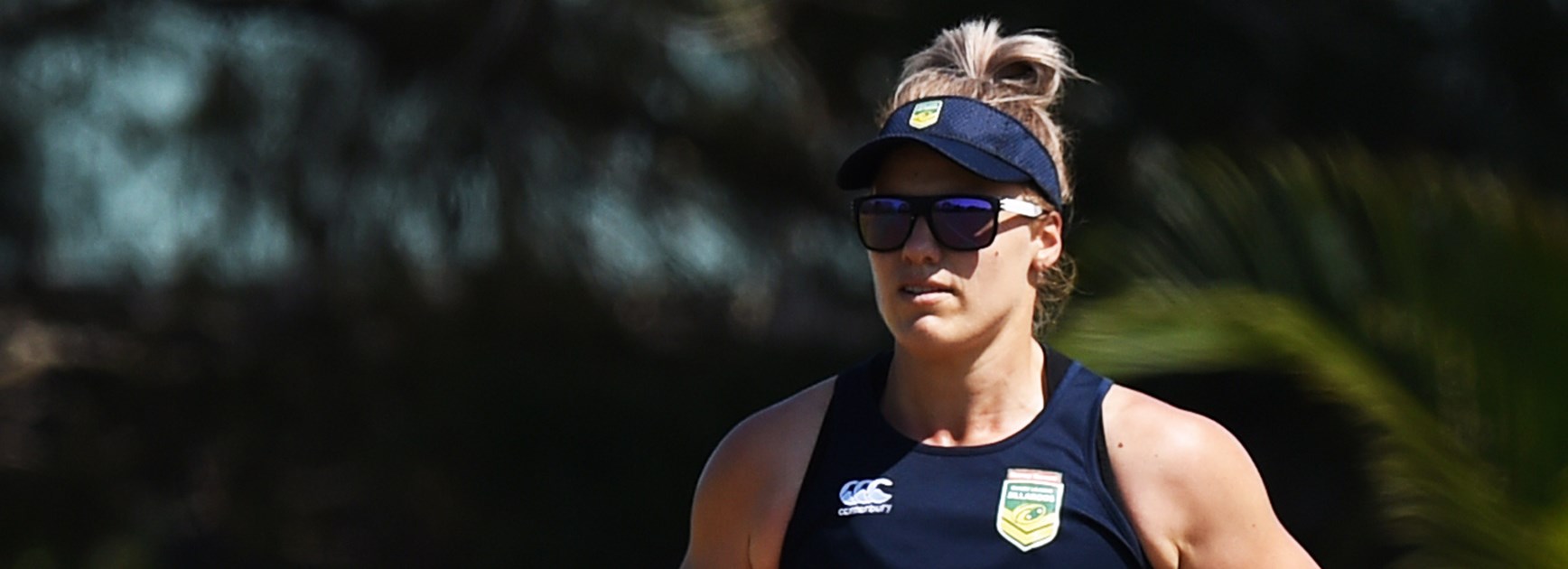
She is a rugby league pioneer laying a pathway for a future professional women's league but Renae Kunst's greatest gift to future female footballers is the $3.75 million in funding she fought so hard to have included in the latest Collective Bargaining Agreement.
Kunst is hoping to finish her playing career with a Women's Rugby League World Cup triumph at Suncorp Stadium on December 2 but her legacy and that of other senior Jillaroos will live on much longer than that.
NRL.com understands that the Rugby League Players Association had suggested any funding for the women's game be negotiated after the CBA with the NRL had been completed. But amid strong protestations from senior Jillaroos players the women's game was allocated $3.75 million of the $980 million agreement that will see NRL players receive a 29.5 per cent share of the forecast game revenue and any out-performance revenue.
A member of the Jillaroos' past two World Cup campaigns, Kunst said it was imperative that any funding for the women's game be included in the CBA so that the right pathway programs can be implemented in order to build towards an eventual professional league in the years to come.
"It was really good. I think it's really important," Kunst said of having the women's funding included in the CBA.
"The senior leadership group were involved in all of those negotiations and trying to help the female game moving forward.
"For us it was really important on the funding we could get now. That was really important because any additional funding in order to showcase a better product is only going to help the women's game in the future.
"They say leave the game in a better place and what a time that I am retiring. I'm so proud of what's going to happen next year and moving forward. They are certainly building towards this professional competition and that's going to be something truly special to see."
Kunst and Steph Hancock are the only two survivors from the Jillaroos' 2008 World Cup squad and both will hang the boots up at the conclusion of this year's tournament, Hancock hoping that the funding that has been allocated will enable the women's game to continue its progression.
"It's better than the $5,000 we got two years ago," Hancock said of the $3.75 million cash injection.
"Pump some money into the pathways and make sure that we don't go backwards.
"Let's just have one State of Origin game, let's have a Test, let's make sure we keep recognising all that has happened to get us to where we are.
"Obviously it would be great to have some form of national competition so the girls have something to aspire to, to play for a team like the Brisbane Broncos or Newcastle Knights."
As other sports such as cricket, soccer and AFL have introduced national women's competitions rugby league has moved forward with a more cautious approach but Kunst is adamant that the next generation of Jillaroos won't have to wait long before they can give up their day jobs.
"I've always been strong on this, you don't go putting something on the main stage unless it's a good product," Kunst told NRL.com.
"So for me personally this World Cup is really important to really showcase a really good product in the hopes of taking that next step towards a professional league.
"What's exciting is that we have got some really good depth now. I'd be as willing to say that probably within the next couple of years [there will be a professional league].
"And what's exciting about our game is that when that time comes and that professional part of the game comes, we're a sport that's going to be able to say that we've got girls that have come through from the age of 12 and they've been able to play rugby league for the past 10-15 years as opposed to being plucked from other sports.
"Female athletes are very versatile and have often come from three or four different sports and that's encouraged, but how great is it going to be to say that these are our home-grown rugby league girls that have come through the pathway all the way to the professional game."

